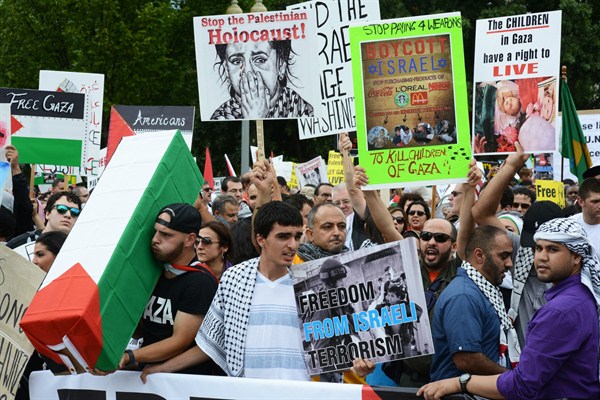Earlier this week, as President Donald Trump released his revised travel ban on citizens from six Muslim-majority countries entering the United States, Israel announced a ban of its own: a law that prohibits the issuing of temporary visas and residency permits to any non-Israeli who has publicly supported or participated in or called for a boycott of Israel. The vaguely worded law, which passed by a comfortable margin of 18 votes in the Knesset, Israel’s parliament, not only applies to supporters of the “Boycott, Divest, Sanction” movement, known as BDS, but of “any area under Israeli control”—a clear reference to rapidly expanding Israeli settlements in the West Bank.
The law, which draws from a 2011 anti-boycott law, applies to anyone “who knowingly issues a public call for boycotting Israel that, given the content of the call and the circumstances in which it was issued, has a reasonable possibility of leading to the imposition of a boycott—if the issuer was aware of this possibility.” That includes companies, NGOs and nonprofits. Under the 2011 law, nonprofits can already be stripped of their nonprofit status and forced to pay taxes as a result of supporting a boycott.
How the new law will be implemented—and how offenders will be identified—remains uncertain. It undoubtedly targets foreigners, but it could also be used against West Bank Palestinians seeking residence permits in Israel for humanitarian reasons, family reunification or other circumstances. Palestinians who have resided within Israel’s borders since 1948 but lack permanent-resident status could also be affected. The committee responsible for drafting the bill ignored calls from the Justice Ministry to exempt Palestinians seeking temporary residence, primarily to see family members.

